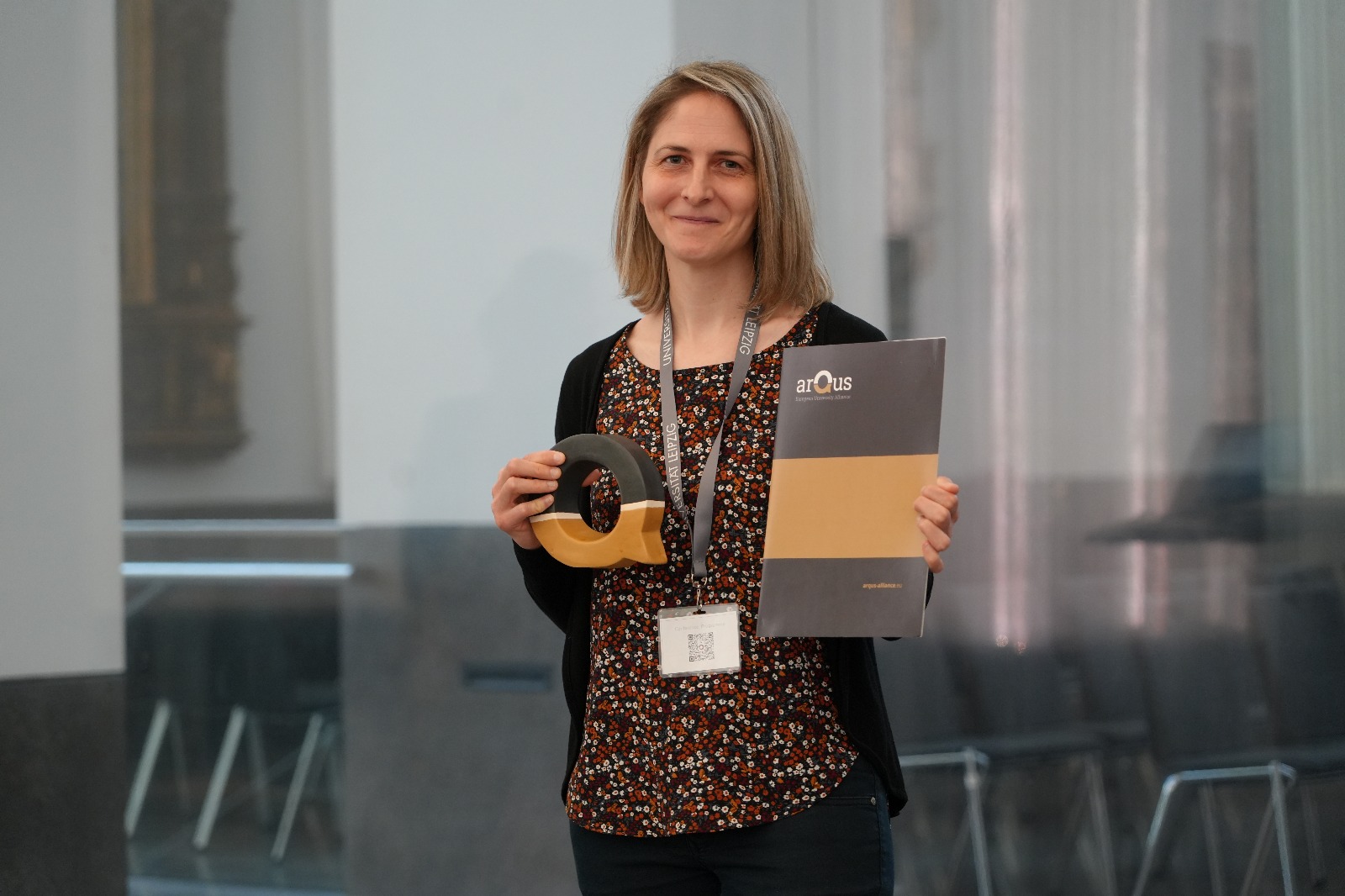Arqus Teaching Excellence Award Winners Announced
 Silvia Kober
Silvia Kober
The Arqus Teaching Excellence Award 2024 has been awarded to Claudia Padovani from the University of Padua and Silvia Kober from the University of Graz. This is the award, organised by the Arqus Alliance, recognising outstanding teaching practices that integrate innovative approaches and enhance student learning. Each winner receives a EUR 5,000 prize, dedicated to furthering the development of teaching and competence.
Focus on evolving field of human-computer interaction
The award-winning project – the course “Applied Neuropsychology in Human-Computer Interaction”, taught by Silvia Kober, is a highly interdisciplinary module, designed for master’s students in Psychology and Computational Social Systems (CSS) at the University of Graz, which addresses the rapidly evolving field of human-computer interaction.
The course explores brain-computer interfaces (BCI), their applications in assisting individuals with disabilities, and the ethical considerations surrounding neurotechnology. By combining theoretical knowledge with hands-on experience, students engage critically with both the benefits and potential risks of these technologies, including emerging issues like neurorights.
Innovative teaching methods in this course include project-based learning, where students actively develop their own BCI systems. For example, in one project, students use their BCI system to control a virtual reality environment, such as directing an avatar to collect virtual diamonds based on brain activity. These hands-on projects not only make learning enjoyable but also prepare students with practical skills for careers in emerging fields like clinical psychology, where technologies like virtual reality are increasingly relevant.
The course also incorporates mobile technology and gamified learning experiences. Students are encouraged to explore AI tools, such as ChatGPT, to learn about neuroscientific methods, compare AI-generated content to textbooks, and critically evaluate the strengths and limitations of AI in academic contexts. Additionally, the course includes a gamified “Escape the Lab” activity that transforms lab demonstrations into an immersive escape room challenge. In groups, students solve neuroscience-related puzzles using tools like EEG and virtual reality to progress through the game. This approach fosters engagement, reinforces course content, and deepens practical understanding of neuroscientific techniques.
Exploring inclusion of media
The second award-winning project, “Communication Practices, Diversity, and Inclusion”, was developed by Claudia Padovani at the University of Padua. This course explores the intersection of media, communication, and democratic principles such as access, inclusion, participation, pluralism, and equality.
Students analyse contemporary debates in global communication, including traditional and digital news media, ICT, and digital platforms, with a focus on how these impact different social groups, such as women, LGBTQI+ communities, ethnic minorities, and indigenous peoples. Through interactive learning, group projects, and international collaborations, students develop transversal skills, including public speaking, intercultural communication, and critical analysis.
A key component of the course was its involvement in the EU-funded project “Rewriting the Story: Tackling Media Gender Stereotypes in Political and Public Life”, coordinated by the International Federation of Journalists. Over the 2022-2024 academic years, students contributed to the project by conducting research, developing media monitoring tools, and creating publicly accessible educational resources.
Their work included fact sheets on women’s political participation across 12 European countries, analysis of gender representation in news media, and the production of multilingual reviews, interactive maps, podcasts, videos, and educational games. By engaging with international scholars, media professionals, and policymakers, students developed a deep understanding of the role of gender-sensitive journalism in fostering democracy and freedom of expression.
About the awards
The Arqus Teaching Excellence Award is a prestigious accolade that recognizes educators within the Arqus European University Alliance who demonstrate innovation and excellence in their teaching practices. This award celebrates initiatives that foster inclusive, student-centred learning environments, promote research-informed teaching approaches, and empower students from diverse backgrounds to thrive in dynamic educational settings.
By acknowledging and supporting outstanding pedagogical practices, the Arqus Teaching Excellence Award aims to inspire educators across the alliance to continue enhancing the quality of teaching and learning, ultimately benefiting the diverse student communities they serve. Teachers from Arqus Universities, who are interested in collaboration and innovation in their teaching, are welcome to apply for the newly established Teaching Innovation Fund.